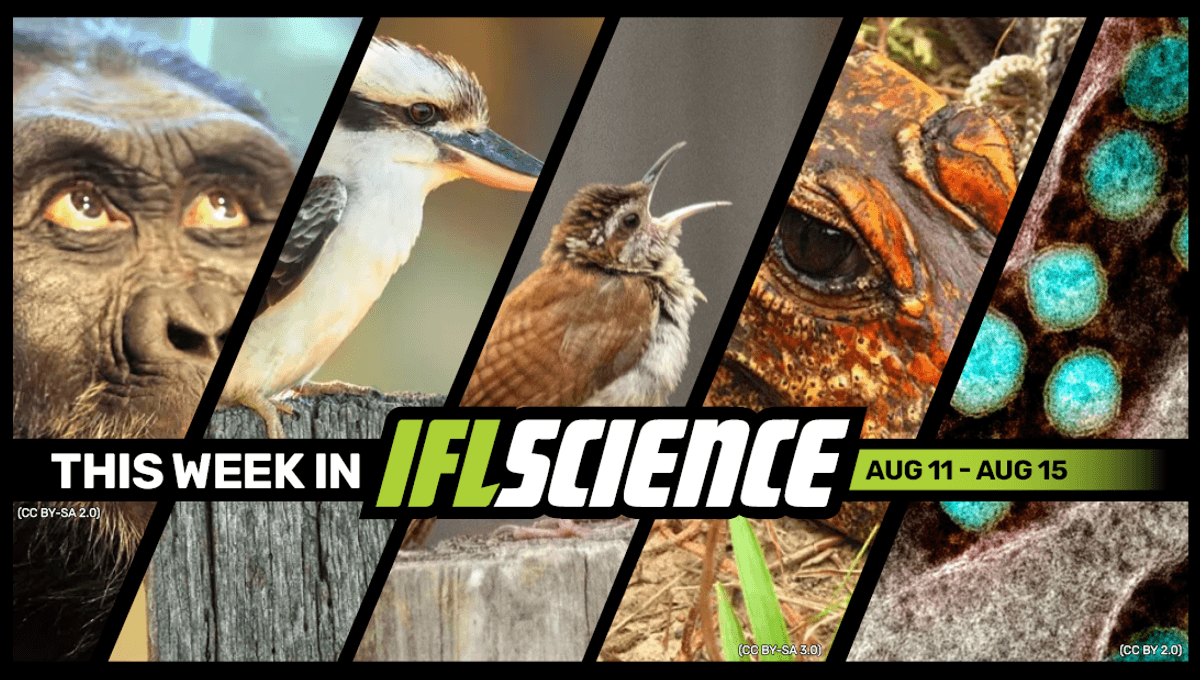
This week, a world-first study has found “sex reversal” is surprisingly common among wild Australian bird species, Gabon’s orange cave crocodiles appear to be evolving into a new species, and even bird songs obey Zipf’s law of abbreviation, just like all human languages. Finally, we explore just how unlucky the only person to ever be killed by a meteorite really was.
The rest of this article is behind a paywall. Please sign in or subscribe to access the full content.
Create an IFLScience account to get all the biggest science news delivered straight to your inbox every Wednesday and Saturday.
New Species Of Early Human Lived Alongside The Oldest Known Homo Over 2.6 Million Years Ago
Fossilized teeth discovered in Ethiopia have revealed a new-to-science species of Australopithecus, a genus of early hominins that lived from the Pliocene to the Early Pleistocene. Not only does it add to our busy human family tree, but the discovery proves they were living alongside the oldest specimens of Homo, the genus of early humans that includes our species, Homo sapiens. Read the full story here
World-First Study Finds “Sex Reversal” Surprisingly Common In Wild Australian Birds
A study of five common Australian bird species in southeast Queensland has found on average, 4.8 percent of them have sexual organs that don’t align with their chromosomes. The authors don’t know the cause of the deviation from biology textbooks, nor how representative the findings are for avian populations elsewhere, but it does appear to be more common than thought in wild birds. Read the full story here
All Human Languages Mysteriously Obey Zipf’s Law Of Abbreviation. It Applies To Bird Songs, Too.
Almost all human languages follow Zipf’s law of abbreviation – and it turns out, so do bird songs. This strange observation shows how many systems, not just human language, are guided by an unwritten, surprisingly consistent mathematical order. Read the full story here
Orange Cave Crocodiles May Be Evolving Into a New Species
A deeply bizarre group of dwarf crocodiles with fiery orange skin lurk in the caves of Central Africa. Immersed in the environment of Gabon’s Abanda cave system, the crocs have developed several strange adaptations that set them apart from their surface-dwelling counterparts. Read the full story here
We Still Don’t Fully Know What Long COVID Actually Is – And That’s A Problem
The lack of a standardized definition of long COVID is hindering research into the condition, according to a new study looking at published work from five different regions. Long COVID is a condition in which someone experiences long-lasting symptoms after recovering from a COVID-19 infection. So far, so simple – but what causes it? The answer is still a resounding “we’re not entirely sure.” Read the full story here
TWIS is published weekly on our Linkedin page, join us there for even more content.
Feature of the week:
The Only Person To Ever Be Killed By A Falling Meteorite Was Extremely Unlucky
Though the Earth doesn’t make a fuss about it, it is bombarded with around 44,000 kilograms (48.5 tons) of meteoritic material every day. Most of it burns up harmlessly in our atmosphere, but some material does make it to the ground. Fortunately, the Earth is pretty big, and you are unlikely to see one hit the ground anywhere near you. But your odds of being hit by a meteorite are always larger than zero. Has anyone ever been killed by a falling piece of space rock? It seems only one, and they were very unlucky. Read the full story here
More content:
Have you seen our e-magazine, CURIOUS? Issue 37 (August 2025) is available now. This month, we asked, “Are There Body Parts You Can Live Without?” – check it out for exclusive interviews, book excerpts, long reads, and more.
PLUS, the We Have Questions podcast – an audio version of our coveted CURIOUS e-magazine column – continues. In episode 11, we ask, “Why Are Yawns Contagious?”
The Big Questions podcast has returned, and we’re continuing season 5 with episode 5’s big question: Will We Ever Have A Universal Flu Vaccine?
Source Link: New Species Of Early Human Lived Alongside The Oldest Known Homo, We Still Don’t Fully Know What Long COVID Actually Is, And Much More This Week